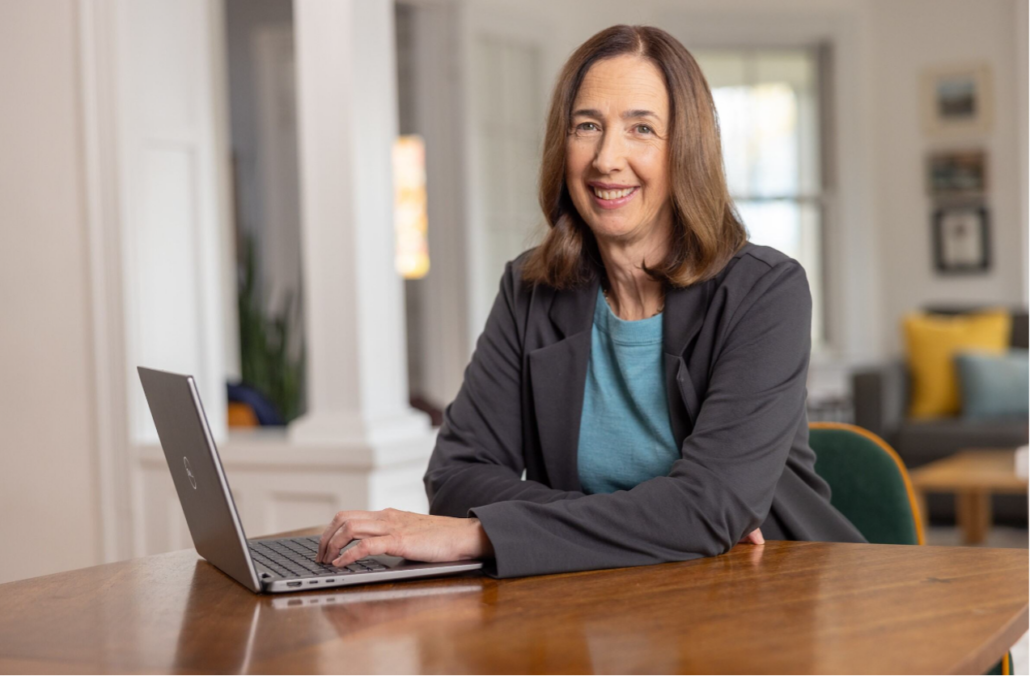“Being a patient changed my life forever,” Part Two — Amyloidosis Research Consortium founder and CEO, Isabelle Lousada, shares how the organization was born, and how it supports patients today

Earlier this month, we had the privilege of hearing firsthand from Isabelle Lousada about her journey to an AL amyloidosis diagnosis nearly 30 years ago and her successful stem cell transplant. After achieving complete remission, Isabelle founded the Amyloidosis Research Consortium (ARC) with the goal of uniting different stakeholders to improve outcomes for patients with all types of amyloidosis. Today, the organization helps connect patients with clinical trials and even brings together different collaborators (including the FDA) to help expedite clinical trials.
Learn more about ARC and their impactful work in amyloidosis from CEO Isabelle Lousada in the Q&A below, and if you haven’t already, watch Isabelle tell her diagnosis and treatment story here.
Q: Tell us about ARC and how it was founded.
A: When I was diagnosed with AL amyloidosis in 1995, there were no organizations that supported patients or research in the field. A few years after I was treated, I got involved and was really focused on AL amyloidosis – being a patient changed my life forever. It is terrifying to be diagnosed with a rare disease and not be able to access treatment easily. I was very fortunate to have a physician for a brother-in-law who was able to guide me. I was so frustrated by the lack of collaboration between stakeholders, which really led me to get involved in advocacy. I felt like something needed to be done better. The only access I had to information about the disease was medical publications, and as a layperson, I couldn’t make any sense of those.
It felt like there were some fundamental things that could help patients. We needed to hold the scientific community more accountable to collaborate better and to focus on accelerating partnerships to improve outcomes for patients. I founded the Amyloidosis Research Consortium, also known as ARC, in 2015.
Today, ARC’s mission is to bring together different stakeholders involved in drug development to accelerate the approval of new therapies and improve outcomes for patients with all types of amyloidosis.
Q: What are some of the challenges facing the amyloidosis community today?
A: Rare diseases have a complex and unique set of barriers. When you are developing a therapy for a disease that has no treatments, it is difficult to determine what endpoints you should choose, and the patient population is very heterogeneous, so no two patients are really identical.
Challenges in a rare disease like amyloidosis, as far as research goes, is having patients to enroll in clinical trials. That can really delay the process. Also, the complexities of treatment have gotten better, but we still have a long way to go, which can make the timeline for trials much longer. We have a big issue with patients who don’t live near an amyloid center or a major city to have access to great care and to clinical trials, too.
Q: Why are clinical trials important in rare diseases like amyloidosis? How do you suggest patients find clinical trials?
A: Clinical trials are vitally important, particularly in rare diseases; every patient should be participating in a clinical trial if they can. They’re vital for us to understand the disease better and to develop new therapies. Resources are available to help patients. Amyloid centers will be able to guide patients, and ARC developed a tool called My Amyloidosis Pathfinder (MAP) that helps patients learn about trials, and will even send them information on new trials that open as they are enrolling.
Q: Why is ARC’s mission so important?
A: Rare diseases are really complex. They’re very hard to study. The world of clinical trials has been developed for common diseases. When you have a smaller number of patients to actually develop new therapies, it’s really critical that we approach them in a different way. That involves effective advocacy and the coming together of the best minds in the field to develop new policies and pathways to ensure that we can develop drugs for rare diseases like amyloidosis. A lot of our work focuses on building collaborations that can help accelerate drug development – both with the FDA and companies developing therapies.
Q: Why is amyloidosis awareness important?
A: Patients are misdiagnosed on average by four physicians before they get an accurate diagnosis. This delay hugely impacts their lives. We’ve developed a lot of educational initiatives that work with the experts in the field, and we raise awareness and provide education for physicians to be able to diagnose the disease earlier. Earlier diagnosis is crucial and critical for patients to do well. This is why amyloidosis awareness is so important – it helps educate the broader population on the disease, as well as its signs and symptoms. It encourages collaboration between stakeholders, and it reminds patients and caregivers to hold on to hope.